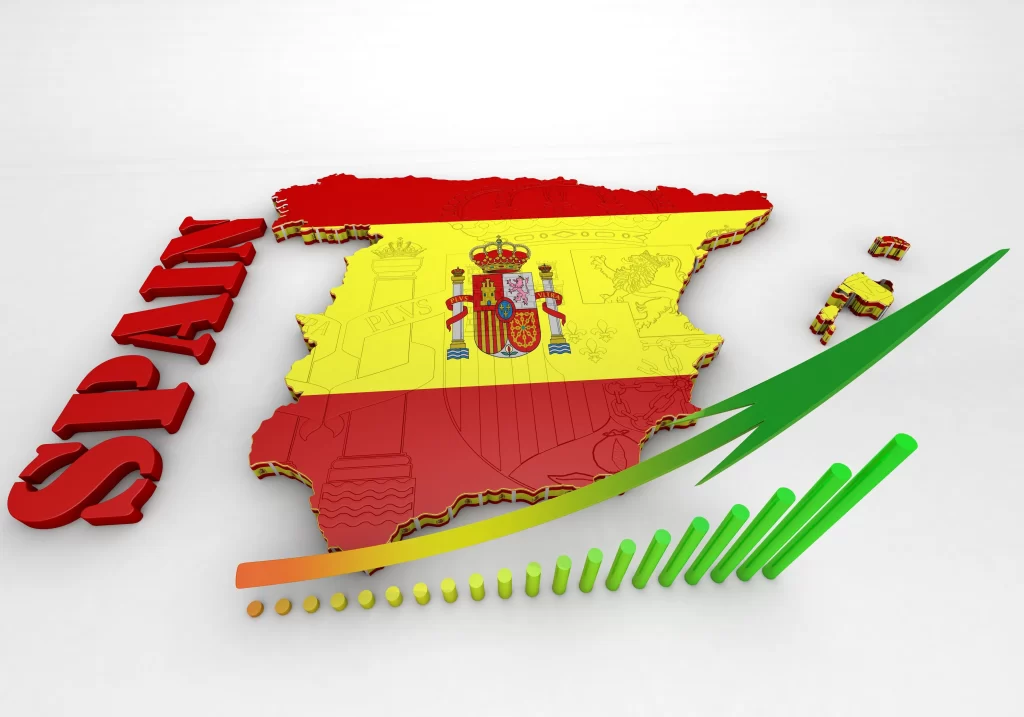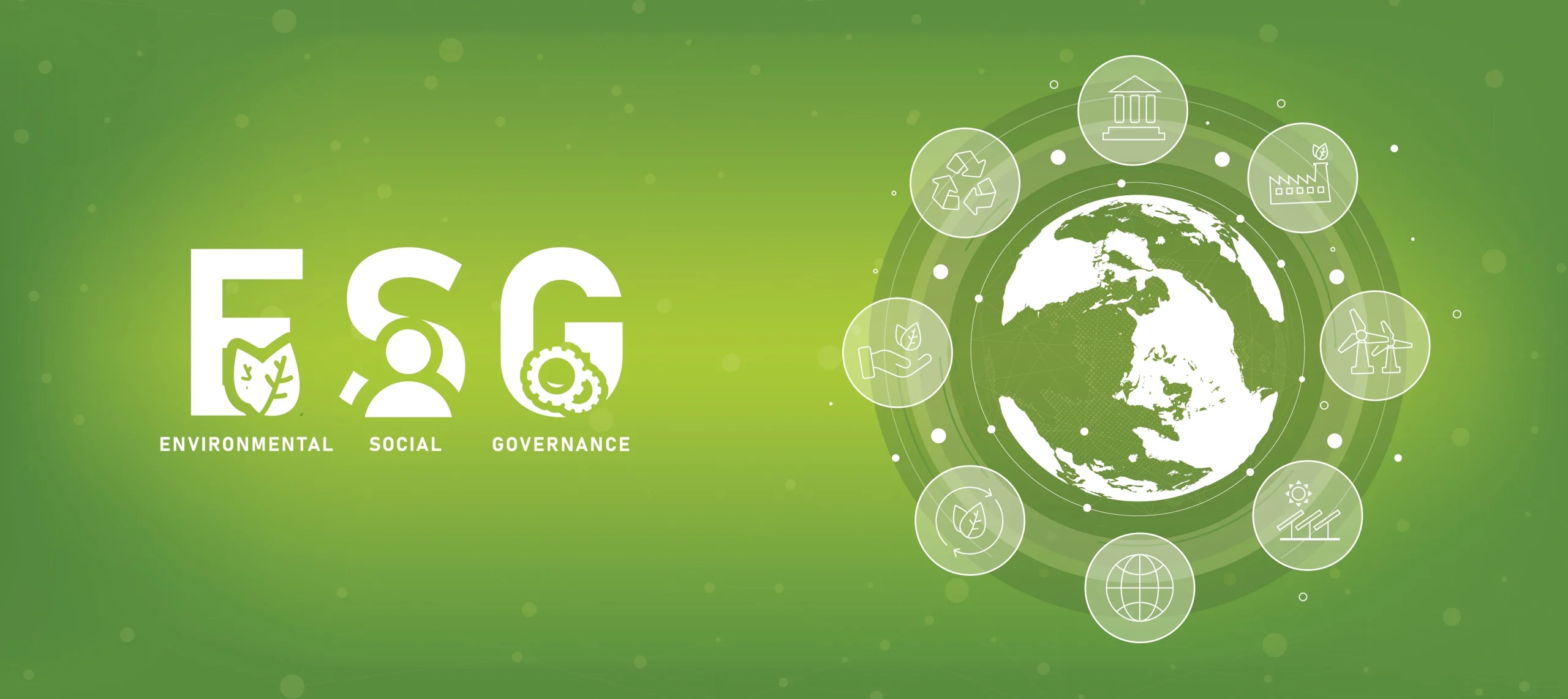Spain’s food and beverage (F&B) sector is like the heartbeat of its economy and culture. Famous worldwide for its amazing olive oils, wines, jamón, and fresh products, this industry puts big numbers into the country’s GDP and keeps lots of people employed. But it’s not just about putting food on tables – it’s about centuries of tradition, new ideas, and that special Spanish flavor that makes the country’s Tourism and Hospitality Management sector shine.
That said, the industry’s got its fair share of headaches these days – from messy logistics and supply chain management problems to customers wanting different things every other week. On the bright side, there’s huge potential in things like sustainable food production in Spain, going digital, and expanding worldwide. Kinda like how even the best jamón needs proper curing, this strong sector’s got its own modern-day challenges to deal with. Between the complicated world of global Logistics and Supply Chain Management and the must-do of Sustainable food production in Spain, businesses are walking a tightrope. For anyone in the business – whether you’re just starting or you’re a pro – getting these challenges and planning ahead is everything. And this is exactly where what you learn at a top Business School in Spain really pays off.
“Spain’s F&B world shows how tradition and new ideas can mix beautifully, but now it needs to change quicker than ever to keep up with global trends,” says Hiren Raval, CEO of C3S Business School in Barcelona. This isn’t just about staying alive – it’s about keeping Spain ahead in the worldwide game. As one of the Top Business School in Spain, C3S Business School is leading the way in studying these changes.
Supply Chain Disruptions: Navigating the Unseen Currents
Getting ingredients from farms to plates, and products from factories to shoppers, depends big time on solid Logistics and Supply Chain Management. But lately, we’ve seen how fragile these systems really are. Spain’s F&B industry has gotten hit especially hard by global crises, political drama, and even local headaches.
The whole logistics and supply chain management game in Spain’s food sector has been all over the place—thanks to port logjams, worldwide tensions, and post-COVID delays. And that’s before you factor in local issues like trucker shortages and wonky transport systems.
“Global supply chains work like a giant nervous system—mess with one part, and the whole thing feels it,” says Prof David Weir from York Business School. These shocks show up as late shipments, crazy shipping fees, and random shortages, screwing up everything from olive oil to seafood. With Spain’s F&B sector leaning on both homegrown goods and imports, it’s walking a real tightrope.
Local problems—like not enough truck drivers or janky roads—make everything worse. For an industry that lives and dies by freshness (especially for the Tourism and Hospitality Management crowd), these aren’t just annoyances—they’re profit killers. Companies gotta start building tougher Logistics and Supply Chain Management plans, mixing up suppliers and buying local where they can. Smart Business School in Spain programs are all over this stuff now.
“COVID and everything after proved that strong Logistics and Supply Chain Management isn’t just an expense—it’s the key to surviving in F&B,” says Dr. Shaik Akbar Basha from London College of Business. That means ditching old-school models for smarter, local-friendly setups. Oh, and fixing this is huge for Sustainable food production in Spain, too.
Prof. David Weir puts it bluntly: “Tough supply chains aren’t ‘nice-to-have’ anymore. Spanish food companies need backup suppliers and AI forecasting—stat.”
Dr. Basha adds: “AI tools for logistics and supply chain management? Game-changer. Smoother routes, fewer delays—everybody* wins.
Future Strategies:
- Strengthen local supply networks to reduce dependency on imports.
- Leverage blockchain for real-time tracking of goods.
- Partner with tourism and hospitality management sectors to streamline last-mile deliveries.
Sustainability Demands: The Green Imperative
The whole sustainability thing isn’t just some tree-hugger trend anymore – it’s literally changing every industry, and Spain’s F&B sector is getting dragged into it too. Everyone – customers, government types, even investors – are suddenly obsessed with eco-friendly practices, forcing changes in how food gets grown, made, packaged, and eaten. Sustainable food production in Spain? Yeah, that’s the hot topic now.
“Sustainability isn’t just corporate buzzword bingo – it’s a complete mindset shift that the food industry can’t ignore anymore,” says Dr. Maria Fernanda Dugarte from C3S Business School in Barcelona (which is like, one of the top business school in Spain, FYI). We’re talking cutting carbon, saving water, less trash, and actually caring where ingredients come from.
The hard part? Getting factories running on solar power, figuring out how to not throw away half the food we make, and inventing packaging that doesn’t choke sea turtles. Sure, it costs big bucks, but here’s the thing – people will actually pay extra for green products now. So Sustainable food production in Spain? That’s not just feel-good stuff – it’s smart business.
“Going green in food isn’t just about farms – you gotta redo your whole Logistics and Supply Chain Management game to cut waste at every step,” says Prof (Dr) John Cokley, this innovation expert who’s taught all over Australia. And yeah, any decent Best Business School in Spain worth its salt is teaching this stuff now.
Dr. Dugarte puts it bluntly: “This isn’t a trend – screw this up, and you’ll lose customers fast.”
Prof Cokley adds: “Smart companies are turning their trash into cash with circular economy tricks.”
Future Strategies:
- Implement renewable energy solutions in production facilities.
- Adopt biodegradable packaging and zero-waste policies.
- Collaborate with tourism and hospitality management sectors to promote sustainable dining.

Rising Costs: The Inflationary Squeeze
Man, inflation is really doing a number on Spain’s food and drink industry right now. Prices for everything – ingredients, energy, just keeping the lights on – are shooting up, and companies are stuck between raising prices or watching their profits disappear.
“This inflation mess is forcing F&B businesses to make some tough calls about money and pricing,” says Dr Aida Mehrad from C3S Business School in Barcelona. And she’s so right – just look at what’s happening:
- Food costs are crazy unstable thanks to climate weirdness, wars, and everyone wanting the same stuff at once
- Energy bills? Don’t even get me started – one month it’s okay, next month you’re paying double to keep those refrigerators running
- Even basic stuff like workers’ pay and packaging materials costs more now
Here’s the kicker – most food businesses already operate on razor-thin margins. So when Logistics and Supply Chain Management costs jump too? That’s a recipe for disaster, especially when you’re trying to keep prices reasonable for restaurants and hotels in the Tourism and Hospitality Management game.
“You gotta get super smart about costs right now,” warns Dr Mehrad. “Cut waste, find cheaper ways to do things, maybe even let some machines take over repetitive jobs.”
Over in London, Prof Philip Mayer from Regent’s University has some solid advice too: “Lock in prices with suppliers when you can, and maybe play the futures market to avoid nasty surprises.”
The bottom line? This inflation storm isn’t going away tomorrow. Companies that learn to adapt fast – maybe with help from a good Business School in Spain – will be the ones still standing when things calm down.
Future Strategies:
- Optimize procurement through bulk purchasing and local sourcing.
- Invest in energy-efficient technologies to cut operational costs.
- Explore automation to reduce labor expenses.
Changing Consumer Preferences: A Shifting Palate
Consumer preferences are constantly evolving, driven by health trends, ethical considerations, convenience, and a growing awareness of dietary choices. Spain’s F&B sector must adapt swiftly to these changing palates to remain relevant and competitive.
“Today’s consumer is more informed and discerning than ever before, demanding not just quality but also transparency, health benefits, and ethical sourcing,” says Prof Philip Mayer, a London-based faculty at Regent’s University London. This shift manifests in several key trends:
- Health and Wellness: A growing demand for natural, organic, low-sugar, low-fat, and functional foods.
- Plant-Based Diets: A significant surge in vegetarian, vegan, and flexitarian options, moving beyond niche markets into mainstream consumption. This impacts Sustainable food production in Spain significantly.
- Convenience: Busy lifestyles drive demand for ready-to-eat meals, meal kits, and easy-to-prepare products.
- Sustainability and Ethics: Consumers increasingly prefer products from companies with strong environmental and social credentials.
- Local and Artisanal: A renewed interest in locally sourced, traditional, and artisanal products, often linked to the Tourism and Hospitality Management experience.
Businesses must innovate their product offerings, reformulate existing products, and develop new marketing strategies to cater to these diverse preferences. This requires deep market research and agile product development cycles. The insights from a Top Business School in Spain can guide these strategic shifts.
Health-conscious consumers are shifting toward organic, plant-based, and ready-to-eat products. Pretam Pandey, COO of C3S Business School, observes: “Brands that innovate with clean-label and functional foods will capture the next wave of demand.”
Dr. Dababrata Chowdhury, a senior faculty at the University of Canterbury, adds:“Personalized nutrition and AI-driven food recommendations are the future.”
Future Strategies:
- Expand plant-based and allergen-free product lines.
- Enhance e-commerce and direct-to-consumer sales channels.
- Partner with tourism and hospitality management players to offer healthier menu options.
Digital Transformation: The Tech-Driven Revolution
The digital revolution is sweeping through Spain’s F&B sector, transforming everything from farm management and factory automation to retail and consumer engagement. Embracing digital transformation is no longer optional; it is a strategic imperative for efficiency, competitiveness, and reaching new markets.
“Digital transformation is fundamentally reshaping how F&B businesses operate, from precision agriculture to AI-driven demand forecasting,” says Pretam Pandey, Chief of Operations at C3S Business School in Barcelona. This involves leveraging technologies such as:
- Automation and Robotics: In manufacturing and processing plants to increase efficiency, reduce labor costs, and improve consistency.
- Big Data and Analytics: For demand forecasting, optimizing Logistics and Supply Chain Management, personalizing marketing, and identifying consumer trends.
- E-commerce and Online Platforms: Expanding direct-to-consumer sales channels and integrating with third-party delivery services, crucial for Tourism and Hospitality Management businesses.
- IoT (Internet of Things): For smart farming, real-time monitoring of produce quality, and tracking inventory.
- Blockchain: For enhanced traceability and transparency in the supply chain, bolstering consumer trust in Sustainable food production in Spain.
These technologies offer immense potential for optimizing operations, reducing waste, enhancing customer experience, and opening new revenue streams. However, they also require significant investment, upskilling of the workforce, and a strategic vision for implementation. A Business School in Spain can provide the expertise to navigate this complex technological landscape.
“The F&B sector must embrace digital transformation not just as a tool, but as a paradigm shift to remain competitive globally,” says Dr Dababrata Chowdhury, a senior faculty at the University of Canterbury Christchurch in the UK. This is a key area of focus for C3S Business School.
From AI-driven quality control to IoT-enabled cold chains, digital transformation is revolutionizing Spain’s F&B sector. Bela Desai, Head of Business at C3S Business School, remarks: “Companies lagging in digital adoption will struggle to compete.”
Dr. P. R. Datta, Executive Chair of CBER UK, adds:“Smart factories and predictive maintenance can slash downtime by 30%.”
Future Strategies:
- Deploy robotics in packaging and processing.
- Use big data to forecast demand and optimize inventory.
- Upskill workforce in Industry 4.0 technologies.
Global Competition & Export Challenges: Battling for Market Share
Spain is a major player in the global F&B market, renowned for its quality produce. However, it faces intense global competition and various export challenges that can hinder its growth and market share.
“While Spanish F&B products are globally recognized for quality, navigating international trade barriers and fierce competition requires sophisticated export strategies,” says Bela Desai, head of business at C3S Business School in Barcelona. Challenges include:
- Trade Barriers: Tariffs, quotas, and non-tariff barriers (e.g., complex import regulations, sanitary and phytosanitary measures) in key export markets.
- Currency Fluctuations: Volatility in exchange rates can impact the competitiveness of Spanish exports.
- Logistics Costs: High international shipping costs, exacerbated by Logistics and Supply Chain Management disruptions, make products more expensive.
- Brand Recognition: While some Spanish products are globally famous, others struggle to gain recognition against established international brands.
- Market Access: Difficulty in penetrating new or highly regulated markets.
To overcome these, Spanish F&B companies must invest in market research, adapt products to local tastes, build strong international distribution networks, and leverage digital marketing to enhance global brand awareness. The expertise in international business gained from a Best Business School in Spain is crucial for this.
“For Spain’s F&B sector, strategic internationalization is key. This involves not just exporting products, but understanding global consumer trends and regulatory landscapes,” says Dr P. R. Datta, executive chair of Centre for Business & Economic Research (CBER) based in London, adding that this global perspective is vital.
While Spain is a leading F&B exporter, trade barriers and competition from Asia and Latin America pose threats. Dr. Rajat Baisya, a global management consultant, warns:“Spanish exporters must differentiate through premium branding and sustainability credentials.”
Prof Marc Sanso, Head of Academics at Aspire Business School, advises: “Leveraging EU trade agreements can open new markets.”
Future Strategies:
- Strengthen branding with Protected Designation of Origin (PDO) labels.
- Expand into high-growth markets like the Middle East and North America.
- Collaborate with tourism and hospitality management to promote Spanish cuisine globally.

Regulatory Compliance: Navigating the Labyrinth of Rules
The F&B sector is one of the most heavily regulated industries globally, and Spain, as an EU member, adheres to stringent food safety, labeling, and environmental regulations. Navigating this complex labyrinth of rules is a continuous challenge for producers and distributors.
“Regulatory compliance is non-negotiable in the F&B sector; it’s the foundation of consumer trust and market access,” says Professor Mani Tahriri of C3S Business School. This includes:
- Food Safety Standards: Adherence to HACCP (Hazard Analysis and Critical Control Points), ISO certifications, and EU food safety directives.
- Labeling Requirements: Ensuring accurate and transparent labeling regarding ingredients, nutritional information, allergens, and origin, often with specific EU mandates.
- Environmental Regulations: Compliance with rules on waste management, water usage, and emissions, increasingly linked to Sustainable food production in Spain.
- Marketing and Advertising Rules: Ensuring claims made about products are accurate and not misleading.
- Import/Export Regulations: Specific rules for products entering or leaving the EU, adding complexity to Logistics and Supply Chain Management.
Non-compliance can lead to severe penalties, product recalls, and significant reputational damage. Businesses must invest in robust quality control systems, continuous employee training, and legal expertise to stay abreast of evolving regulations.
“Staying ahead of regulatory changes requires dedicated resources and a proactive approach, especially with new directives emerging around sustainability and digital traceability,” says Dr Rajat Baisya, a global management consultant and former dean of IIT Delhi and CEO of Emami Group. A Business School in Spain can help businesses develop these compliance strategies.
EU regulations on food safety, labeling, and traceability are becoming stricter. Prof. Xavier Puertas of C3S Business School states: “Non-compliance can lead to hefty fines and reputational damage.”
Prof. Michael Taylor, Registrar of London College of Business, adds: “Proactive compliance management is key to avoiding disruptions.”
Future Strategies:
- Invest in compliance software for real-time monitoring.
- Train teams on evolving EU and national regulations.
- Engage with policymakers to shape favorable legislation.
Future Strategies for Spain’s F&B Sector & The Role of Education
To thrive amidst these challenges, Spain’s F&B sector must adopt forward-thinking strategies, underpinned by innovation, sustainability, and strategic leadership. Education plays a pivotal role in shaping this future.
- Innovation and R&D: Investing in new product development, process optimization, and technological adoption (e.g., AI in farming, blockchain for traceability). This is crucial for meeting changing consumer demands and enhancing efficiency.
- Supply Chain Resilience: Building diversified, localized, and digitally enabled Logistics and Supply Chain Management networks to withstand disruptions.
- Sustainability as a Core Value: Embedding Sustainable food production in Spain practices throughout the entire value chain, from farm to consumer, to meet ethical demands and achieve long-term viability. This also enhances brand image, particularly for the Tourism and Hospitality Management sector.
- Digitalization: Full embrace of digital transformation across operations, marketing, and sales channels, including e-commerce and data analytics.
- Targeted Export Strategies: Focusing on high-growth markets, understanding local preferences, and building strong international partnerships.
- Talent Development: Investing in upskilling the workforce to adapt to new technologies and sustainable practices.
“The future success of Spain’s F&B sector hinges on its ability to innovate and adapt, driven by a new generation of skilled professionals,” says Prof Marc Sanso, head of academics of Aspire Business School in Spain. This is where institutions like C3S Business School come in.
As a Best Business School in Spain, C3S Business School is uniquely positioned to prepare these future leaders. Our programs in Logistics and Supply Chain Management, Tourism and Hospitality Management, and general business administration equip students with the analytical tools, strategic thinking, and practical skills needed to navigate the complexities of the F&B sector.
“Our curriculum is designed to address the very challenges facing industries like F&B, providing students with actionable insights and real-world problem-solving capabilities,” says Professor Xavier Puertas at C3S Business School.
“The blend of academic rigor and industry relevance ensures our graduates are ready to make an immediate impact,” says Prof Michael Taylor, Registrar of the London College of Business based in London.
“At C3S Business School, we foster a culture of innovation and sustainability, preparing students to lead the transformation of the F&B sector,” says Professor Eduardo Ortiz, C3S Business School, Barcelona, Spain.
“Understanding the intricate web of global trade and Logistics and Supply Chain Management is paramount for any F&B professional today,” says Prof David M J Graves, who specialises in Private and Public Corporate Governance issues, National and International Financial Crime, and all fraud related offences.
“Our programs provide the strategic foresight needed to anticipate and respond to evolving consumer preferences and regulatory landscapes,” says Dr. Fernando Velasquez Villalba, a senior faculty at C3 Business School, Spain.
“The emphasis on sustainable food production in Spain within our curriculum reflects the growing importance of environmental responsibility in the F&B industry,” says Prof Asraful Khan, a faculty at Arden University, London.
“We equip students with the digital literacy to drive transformation in F&B manufacturing and retail,” says Dr. Francisco Rosique Gill, a senior visiting faculty at C3S Business School, Barcelona.
“The ability to navigate global competition and develop effective export strategies is a key skill we impart,” says Dr Kalyan Sahoo, the former Vice Chancellor of Arni University and who currently teaches at IIM Indore.
“Our Business School in Spain is committed to nurturing the talent that will lead the F&B sector into a more resilient and sustainable future,” says Professor Esther Comin of C3S Business School.
“The challenges facing Spain’s F&B sector are complex, but with the right skills and strategies, they can be transformed into opportunities for growth and innovation,” says Dr P. R Datta, executive chair, CBER UK.
“As a Top Business School in Spain, we provide the ideal environment for aspiring F&B professionals to develop their expertise in Logistics and Supply Chain Management and Tourism and Hospitality Management,” says Professor Jordi Villanova of C3S Business School.
Spain’s F&B industry must tackle logistics and supply chain management hurdles, embrace sustainable food production, and leverage digital tools to stay competitive. As Professor Eduardo Ortiz of C3S Business School concludes: “Innovation, agility, and sustainability will define the winners in this dynamic sector.”





